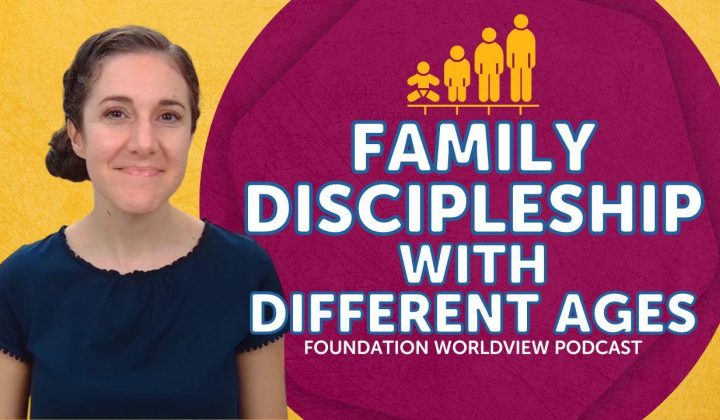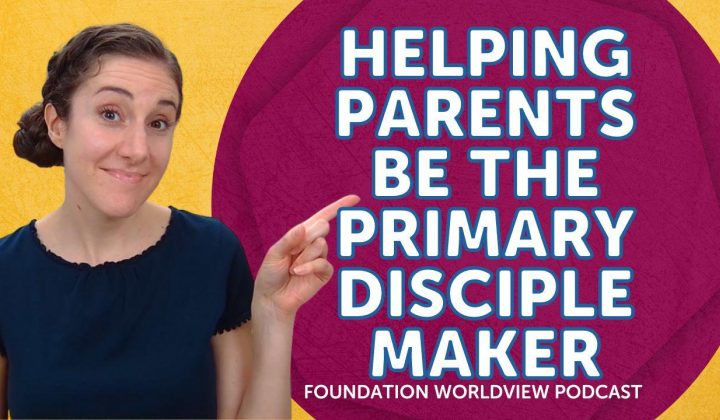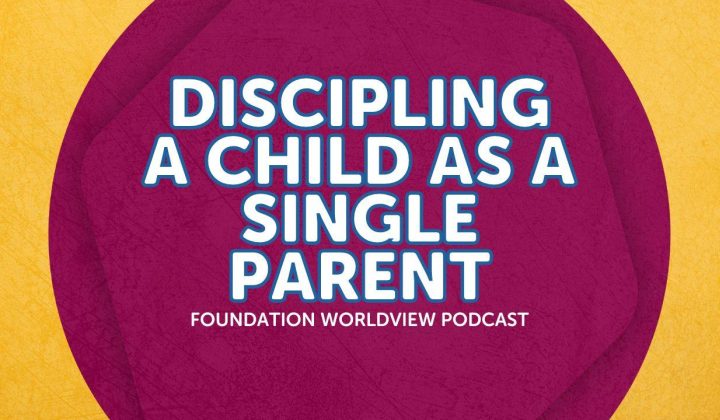Learn more about the journey that led to us equipping kids to carefully evaluate every idea they encounter.
Meet members of our team who have contributed to curriculum development.
Hear from real users of the Foundation Curriculum.
Learn what we believe about God, Jesus, Scripture, and more.
Is Proverbs 22:6 a Promise?
Hello, friends. Today's question is short and sweet. It says, Is Proverbs 22:6 a promise?
This is a question I’ve received many times before because Proverbs 22:6 says:
“Train up a child in the way he should go; even when he is old, he will not depart from it.”
Many parents cling to this verse as a promise that if they raise their children in the faith, those children will remain in the faith all their lives. Naturally, a lot of people want to know: Is this really a promise?
That’s the question we’re going to dive into today on the Foundation Worldview Podcast, where we seek to answer your questions so that you can equip the children God has placed in your care to carefully evaluate every idea they encounter and understand the truth of the biblical worldview.
I’m your host, Elizabeth Urbanowicz, and I’m thrilled that you’ve joined me today! Before we begin, I just want to thank this questioner for writing in. If you have a question you’d like answered on a future episode, please submit it at foundationworldview.com/podcast. We couldn’t do this podcast without your questions—so thank you!
How Should We Understand Proverbs 22:6?
To answer the question of whether Proverbs 22:6 is a promise, we need to understand the book of Proverbs as a whole. If you’ve read through Proverbs, you know it’s divided into three distinct sections:
- Chapters 1-9: A father’s address to his son, along with the call of Lady Wisdom.
- Chapters 10-29: Proverbs of wisdom collected by Solomon.
- Chapters 30-31: The wisdom of a man named Agur and King Lemuel.
Proverbs 22:6 falls within that second section—Solomon’s collection of proverbs. These are generally short, two-line nuggets of wisdom, such as:
“Train up a child in the way he should go; even when he is old, he will not depart from it.”
These proverbs offer general principles for living in a way that honors God. But they aren’t designed to be promises. Instead, they give us insights into how the world generally works.
How Proverbs Relates to the Rest of Scripture
To understand Proverbs properly, we should place it within the broader context of the Bible. The first section of the Bible, known as the Pentateuch (or the Law), reveals God’s commands and includes promises for obedience and warnings for disobedience.
Then, the historical books of the Bible show how God fulfilled those promises. When Israel had godly leaders like David, they experienced God’s blessings. But when they rebelled and turned to idolatry, they faced judgment.
After the historical books, we come to wisdom literature, where Proverbs belongs. Other wisdom books include Psalms, Ecclesiastes, and Job. These books teach us how to live wisely in a fallen world.
In Proverbs, we find general truths that describe patterns of life. But these truths aren’t guarantees. For example, Proverbs 10:4 says:
“A slack hand causes poverty, but the hand of the diligent makes rich.”
Generally, if someone is lazy, they’ll experience poverty. And if someone works hard, they may become prosperous. But we also know exceptions to this. Some lazy people become rich through sheer luck (like investing early in Bitcoin!), while others work hard but still struggle financially.
Understanding Proverbs as General Wisdom
Another example is Proverbs 10:27, which says:
“The fear of the Lord prolongs life, but the years of the wicked will be short.”
In general, wise and godly living leads to a longer life. If you take care of your body, avoid risky behaviors, and live within God’s design, you may experience a long life. But again, there are exceptions. Some people live recklessly and survive to old age, while others live wisely and die young.
In eternity, when Jesus returns, these proverbs will fully reflect reality because all things will be made right. But for now, these sayings provide general patterns—not guaranteed promises.
Proverbs focuses on the general rule and doesn’t address the exceptions. For that, we turn to other wisdom books like Ecclesiastes, which highlights life’s fleeting nature, and Job, which explores why righteous people suffer.
Is Proverbs 22:6 a Promise?
So, is Proverbs 22:6 a promise? No, it’s not.
If you’ve clung to this verse as a promise, please understand—I’m not trying to attack or criticize you. I simply want us to learn how to read Scripture wisely, understanding its different genres and purposes.
The first time I publicly shared that Proverbs 22:6 isn’t a promise, it was during a presentation at a homeschooling conference. I had no idea how many people considered this verse to be a promise! Afterward, a whole line of parents approached me—many of them upset—insisting that the verse was a promise.
My prayer for them (and for you) is that we would all learn to interpret Scripture correctly, not by experiencing heartbreak, but by developing a deeper understanding of God’s Word.
What This Verse Does Offer
While Proverbs 22:6 isn’t a promise, it is general wisdom worth taking seriously. You are wise to train your children in the way they should go. If you teach them to love God’s Word at a young age, they are much more likely to follow Him throughout their lives.
If you’re unsure how to understand Proverbs and other parts of Scripture, I highly recommend checking out our Studying the Bible Curriculum. Many parents have shared how much they learned by going through it with their children. This curriculum walks kids through Scripture’s grand narrative of redemption and equips them to soundly read, interpret, and apply the Bible.
Related Posts and insights

Family Discipleship with Different Ages
Trying to incorporate family discipleship or family worship in your home? Today's question says, "how would you recommend family discipleship with an age difference between kids?" In this episode, Elizabeth Urbanowicz provides insights and strategies on how to best approach family discipleship in a home with children who vary in age.

Helping Parents be the Primary Disciple Maker
How do we help parents be equipped to disciple the children in their care? In this episode, Elizabeth Urbanowicz, speaks to parents and church ministry leaders about how we can help parents see the need to be the primary disciple makers to their children, and how this can be modeled for other parents.

How To Disciple Your Child as a Single Parent
Today's question says, "How do I disciple my child as a single parent?" Listen as Elizabeth Urbanowicz answers this question in a way that is not only beneficial for the single parent but also for anyone that is part of the body of Christ.



